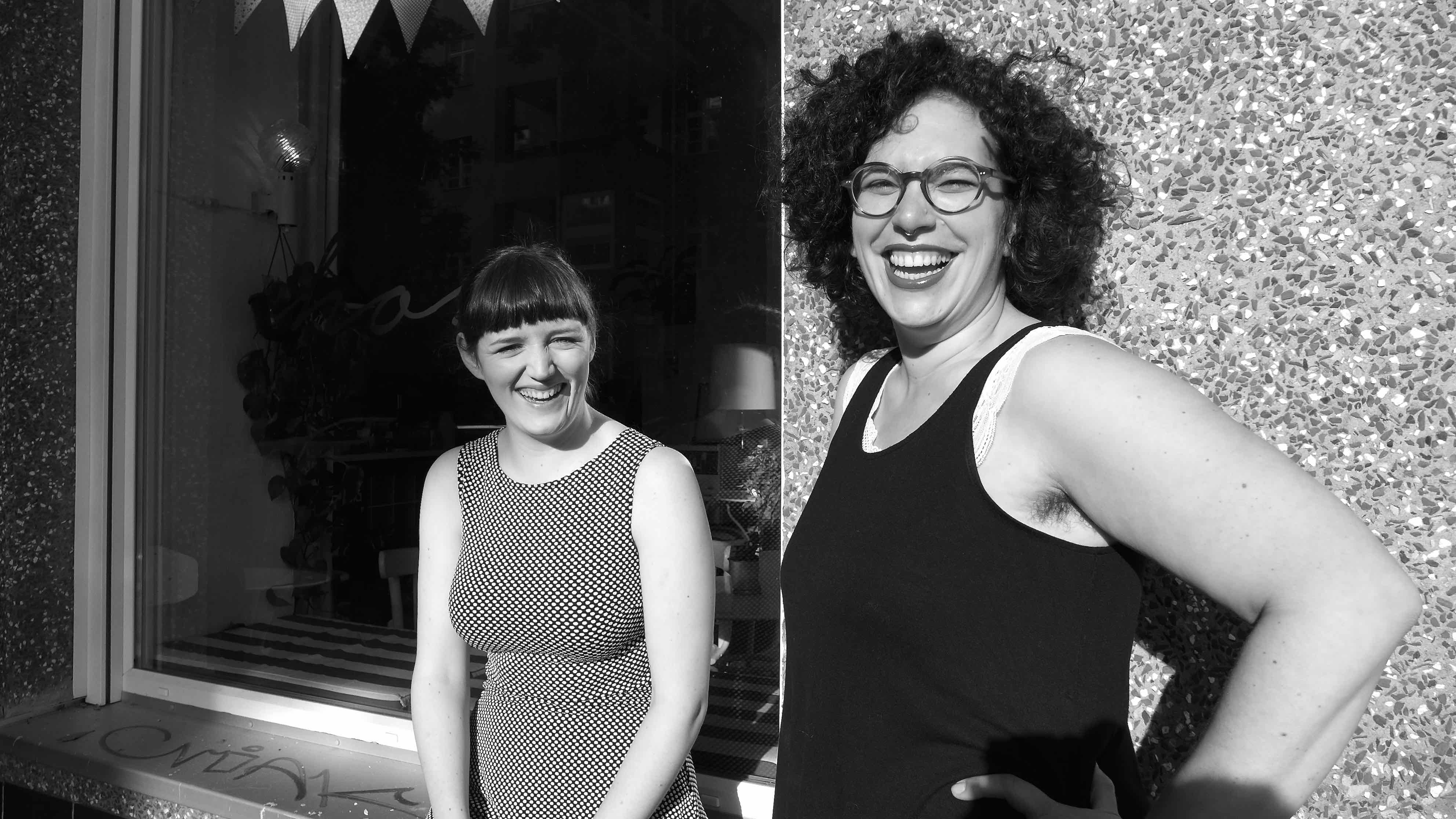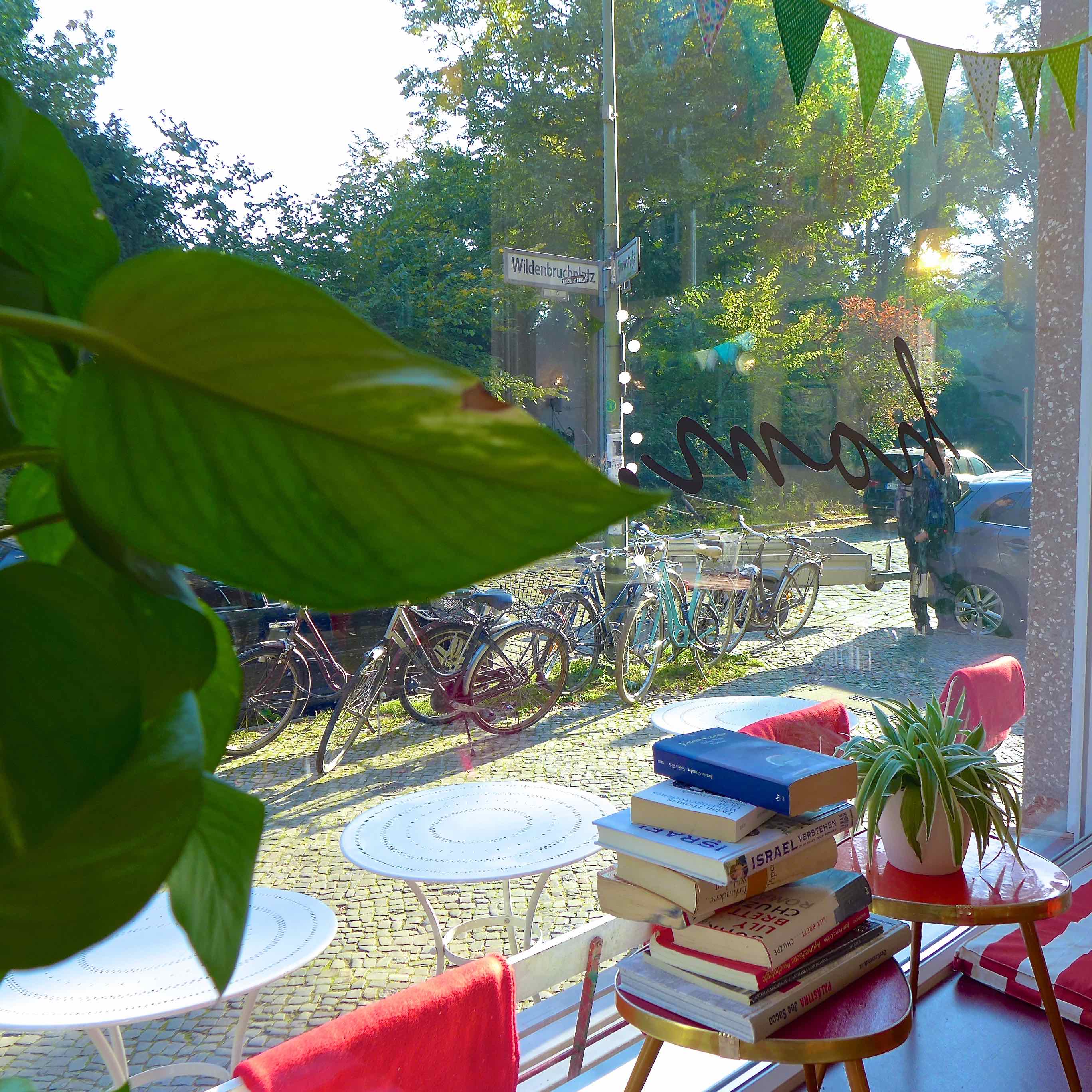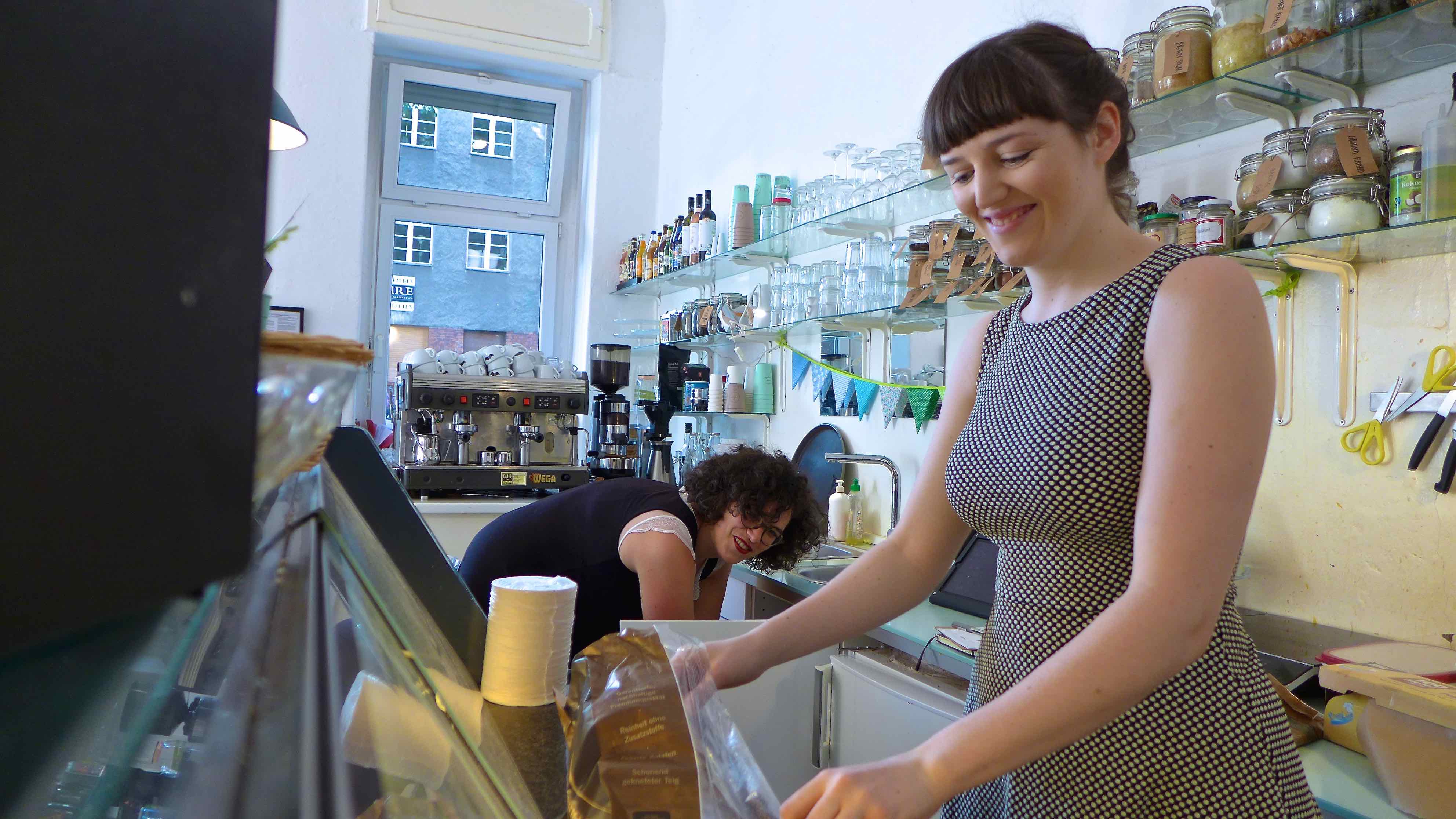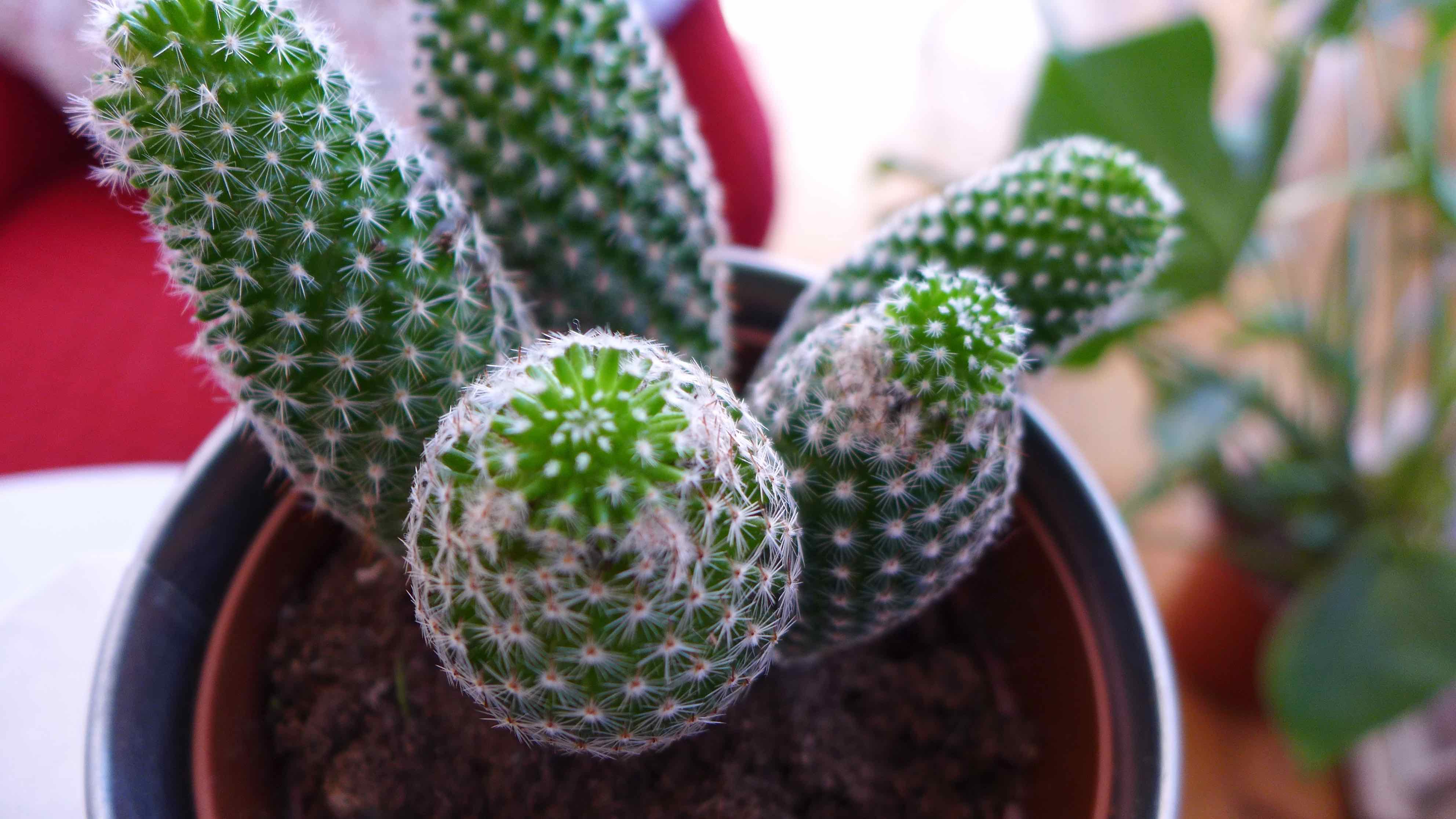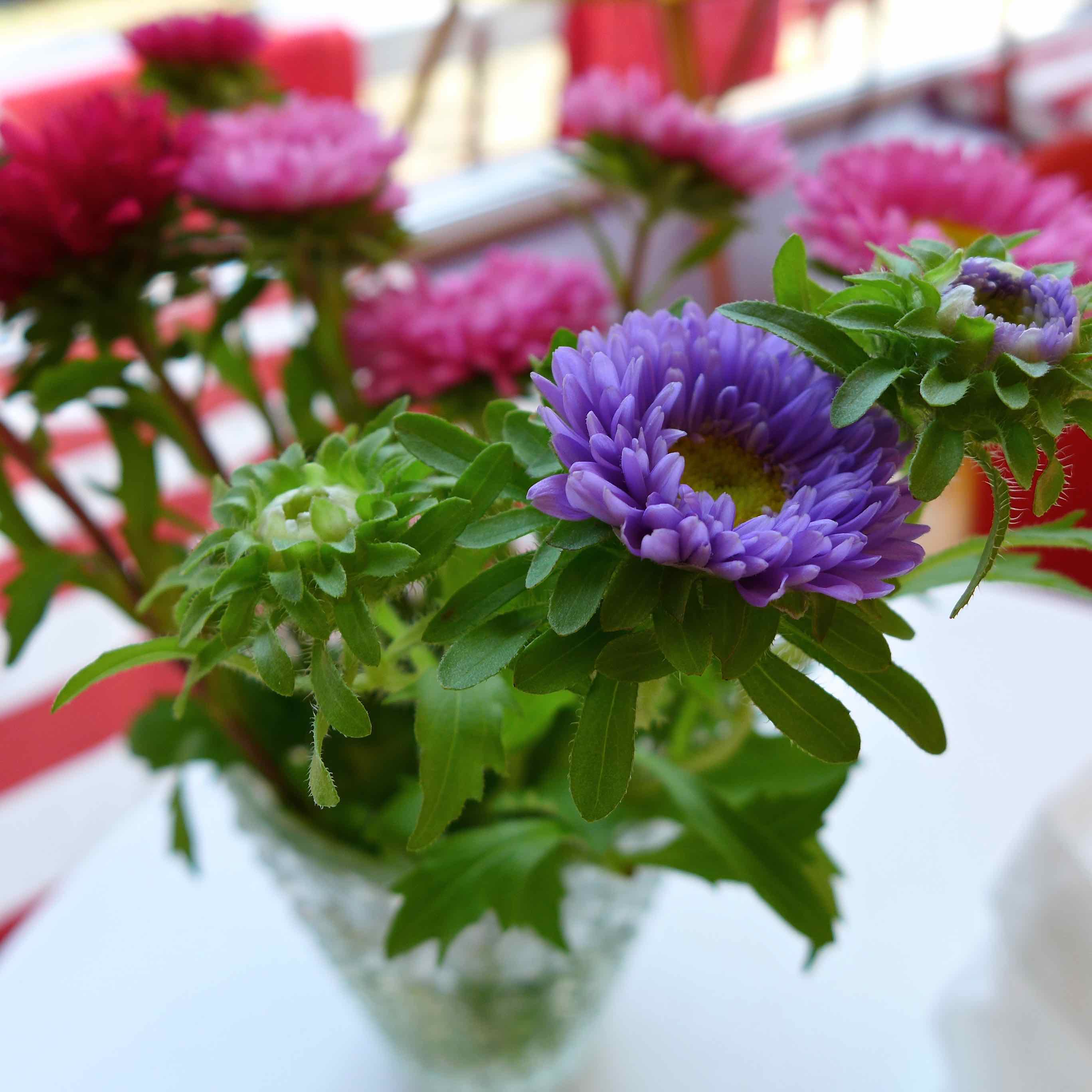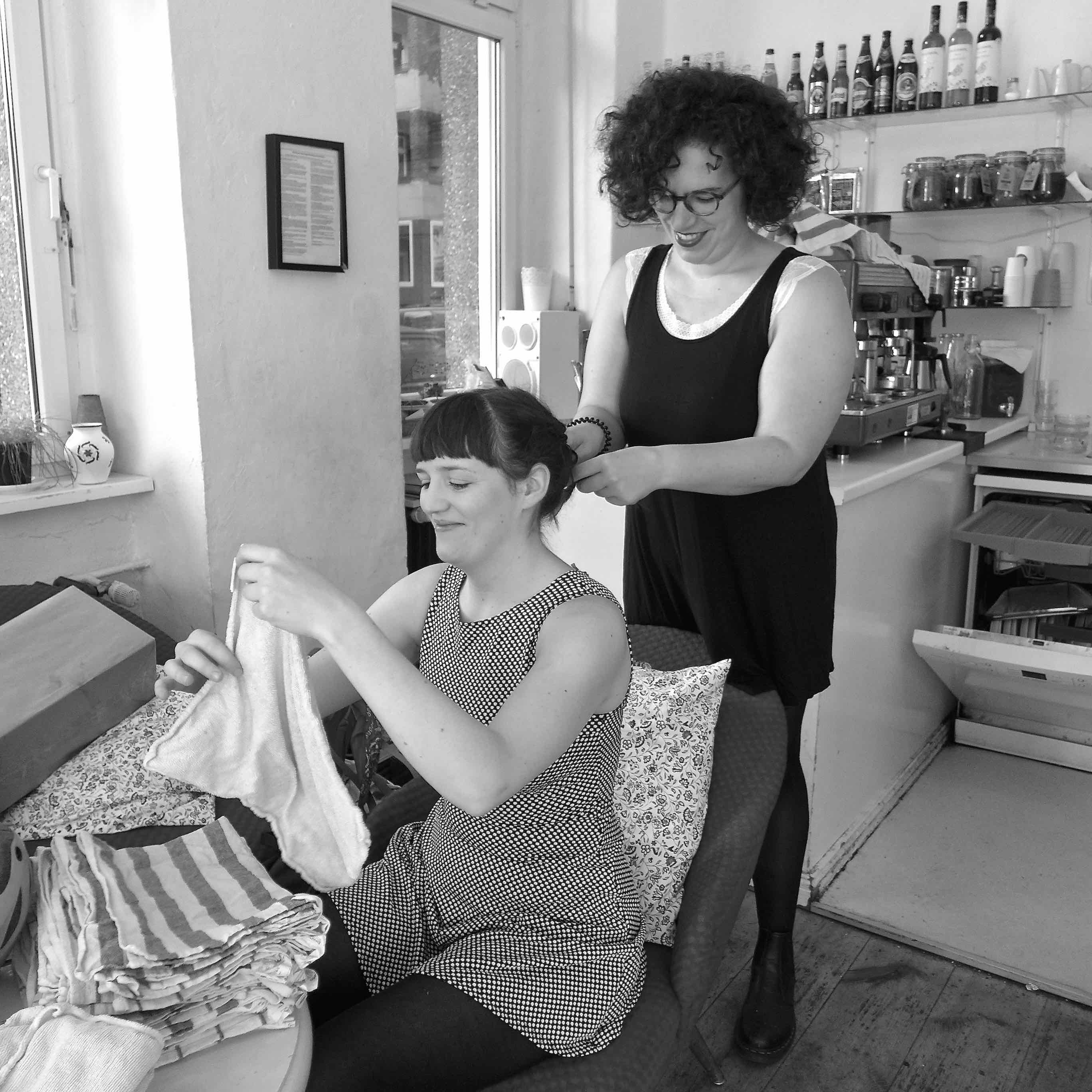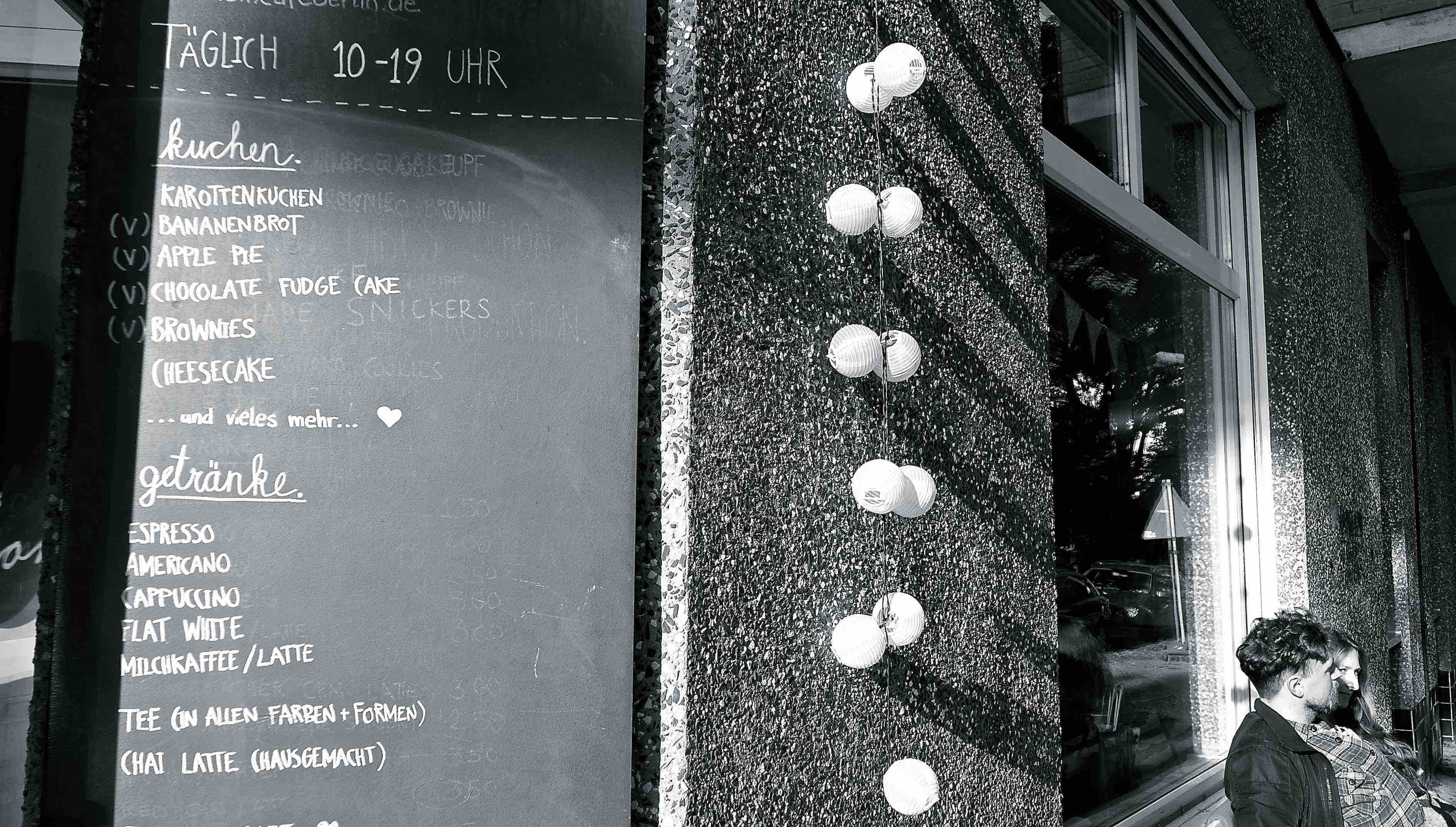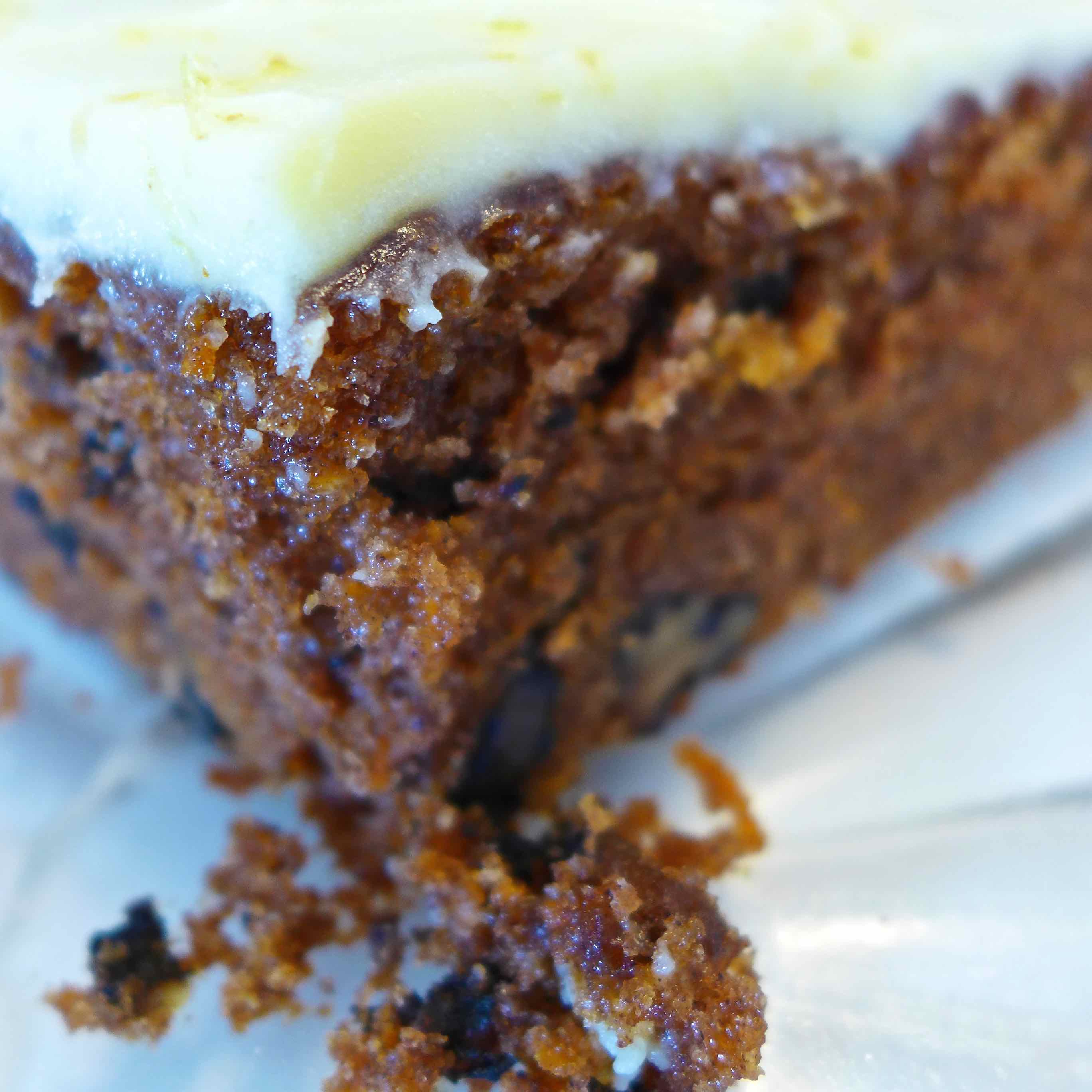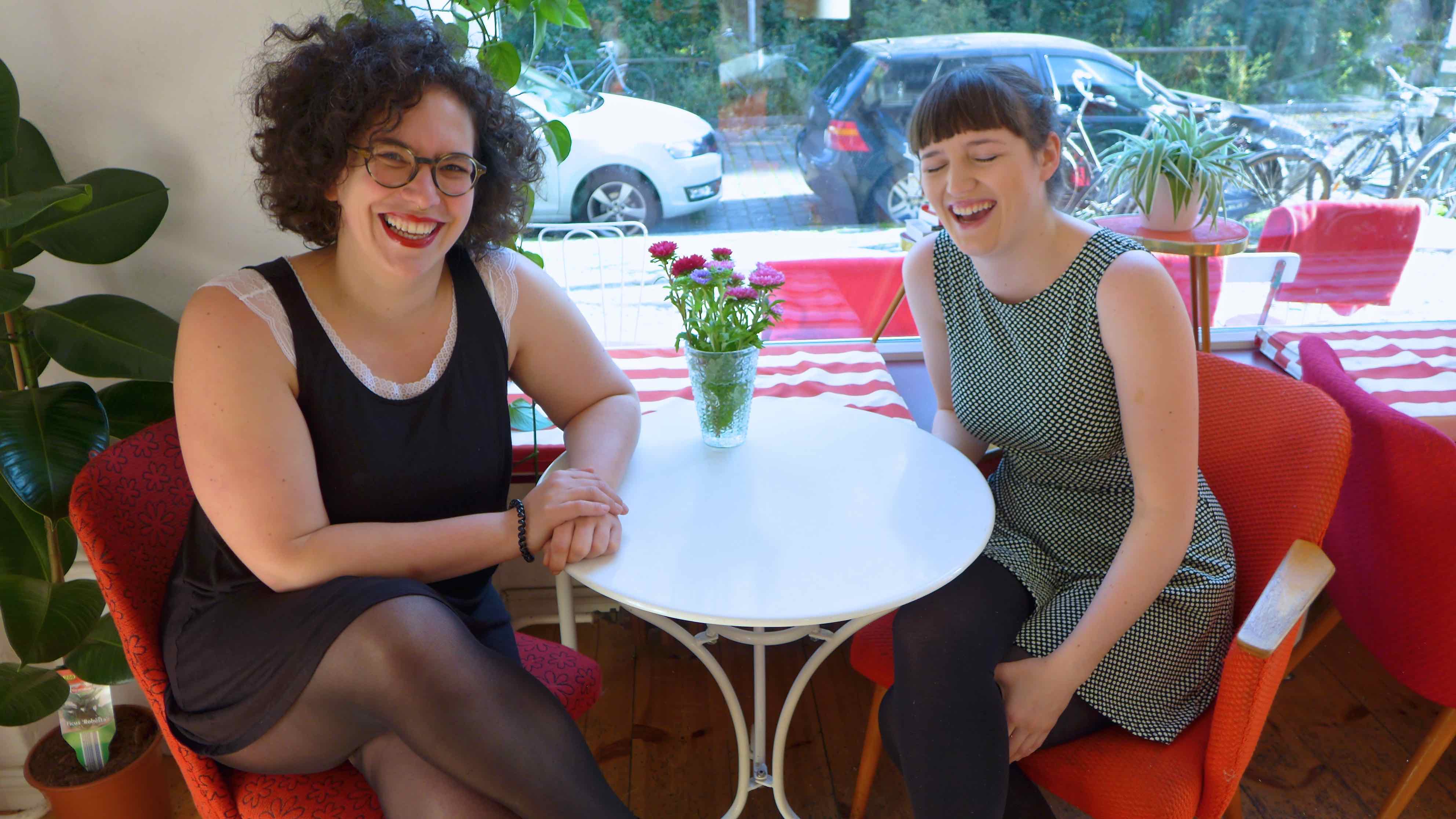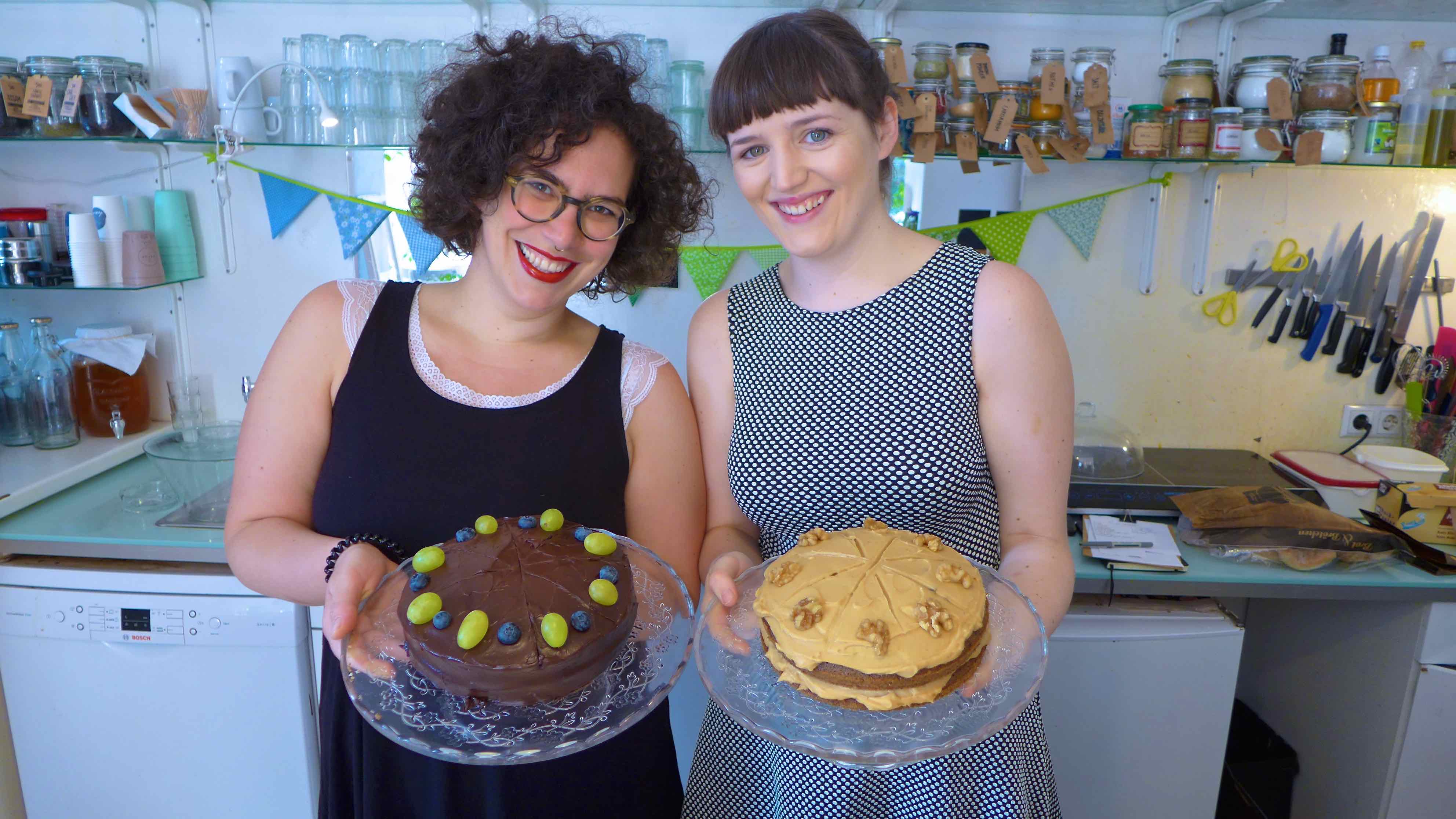
Recently I got lucky.
My husband Oliver and I were coming to the end of our time in Berlin. About to move back to Australia, we managed to find someone who wanted to buy all our furniture and take on the new lease of our apartment. The only hitch being we’d need to leave a month early and find another place to live temporarily. Not easy in a city with a rental crisis.
A good friend helped us out, renting us his extra room. Not only did we have a sweet-as apartment to stay in (and a laid-back, lovely-as wine-and-cheese-fan of a housemate), we were about to relocate to one of the most exciting and talked about neighbourhoods of Berlin: Neukölln. And not only that, leafy, ornate Wildenbruchplatz.
Known for its vibrant and hospitable Turkish population, markets, busy streets and fistfuls of eateries and bars, Neukölln is in the middle of a boom – a controversial one. Once poor, rough and undesirable (except to its “indigenous” inhabitants), longtime locals have repeatedly protested against rising rents, increasingly priced out of the area by landlords profiteering from the international “roamer” and business workforce, flooding the city to take advantage of start ups and cheap rents.
Plus establishments often staffed by “hipster types”, sleeve tattoos, aloof attitudes and man-buns abounding. And, where the first language is often English: nicht Deutsch.
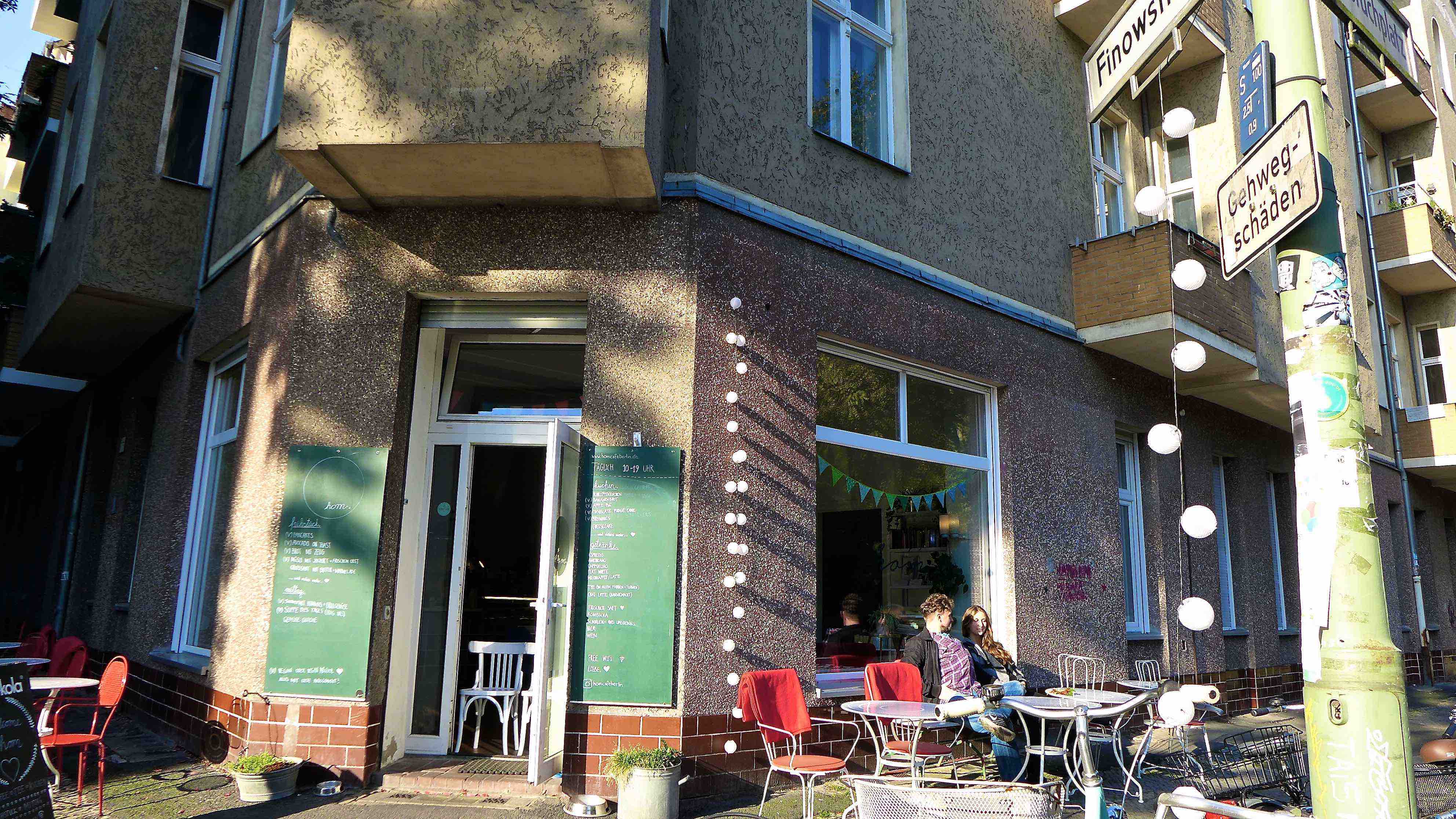
Hom corner store in the Autumn sunshine, with Richard, Maria and baby Mattis. Photo: Megan Spencer (c) 2017.
That’s not to say you won’t still find a döner shop or a “spätie” on every corner. But now thrown into this colourful residential melting pot are those with new money: the new “new” slackers, seemingly with means, without the need to work (too much anyway), nor the need to speak German, a language so highly prized by its citizens it has been deemed “scientific”. And a proclivity to spend obscene amounts of time in cafes with free wi-fi: lock down and never look up.
It’s contentious. Gentrification has Berlin in its uber-capitalist, “things white people like”, vice-like grip.
Be that as it may (and until recently, admittedly part of “the problem”), how overjoyed was I to find a cafe just across the road from my new home. Hailing from Melbourne as I do, a city that has for decades pioneered community through hospitality – and food, wine and coffee culture – courtesy of its generous, diverse, inter-generational migrant population… Having lived in two very conservative Berlin neighbourhoods where “corner stores” consisted of smokey Kneipen largely filled with Auslander-suspicious locals… And utterly sick of the “hostility” unleashed on me every time I was in need of caffeine, hom café berlin was a sight for sore eyes.
There I found two incredibly friendly, creative cooks who made decent coffee, lovely food and didn’t charge like wounded bulls. They knew what good service was – and loved to be of service. Hospitality found! I felt ‘home’ again.
There is something to be said for kindness. There is case to be made for the warmth of connection. And there is definitely an argument to be had about finding a place to sit, reflect and eat well. To be looked after. That’s also what I found at hom, courtesy of its owner/operators, Hana Hiriri and Sarah Playfair.
Hospitality ‘lifers’ and having taken over (and made-over) hom only months before, just like me they were part of the international “Wahlberliner” population who’d also fallen in love with the city, decided to stay, open a business and call it home. Perhaps in spite of the resistance.
To me, hom represents some of the best – and historic – aspects of Berlin: the glue that has held the city together for over a century, in spite of the wars and walls that have cleaved it in two. Manifestly, inclusiveness, openness and tolerance for ‘others’. Come one, come all. It’s not just about baking cakes and making pretty spaces. At hom Hana and Sarah not only create amazing food, they have also created an amazing, inclusive, kind space. Consciously. With intent. And, just quietly, with a communal agenda.
Speaking both German and English, Sarah and Hana welcome all through their doors, and do their best to give everyone a good experience, no matter what.
It’s part of their credo. And something I was very grateful for, as I said goodbye to Berlin. It’s what made me want to hear their story. Hom is where the heart is, for real.
Circus Folk: Like so many living in Berlin, you’re both wahlberliners, “Berliners by choice”, hailing from elsewhere in Europe. Could you please give us a “snapshot” of your respective backgrounds before coming to Berlin?
Hana: I was born and raised in Austria, just a little outside of Vienna. My dad is Lebanese, my mum is Slovak, they came to Austria a couple of years before I made my first appearance.
I studied Design and Product Management in Salzburg, and did my first odd jobs in hospitality at that time. After I finally graduated (I took my sweet, sweet time), I realized that I had no ambition to pursue a career in that field.
That was the moment I packed my bags and started moving around, working in different jobs in different countries, ultimately landing in Berlin.
Sarah: I was born in London and grew up in Leicester. My parents are both teachers and my dad is also extremely politically active – which rubbed off on me – leading me to study politics at Leeds University.
After a year interning for politicians in London and Canada I realized that politics was definitely not a career for me and decided instead to train as an English teacher so that I could travel. I lived in France for two years teaching English, and then moved here to Berlin.
Hana: I arrived in December 2012 after traveling for a couple of months. I was so broke at that point I kinda had to stay and find a job! So that’s what I did; I ended up liking it so I stayed for a year. Then I moved to Scotland, where I stayed for another year, but ultimately my heart was telling me that Scotland was not where I was meant to be long term. So in January 2015 I came back to Berlin. I’ve been here ever since.
Sarah: I moved here almost 3 years ago, for that all-too-common reason of following my man! Although it goes against my feminist beliefs (hehe) I’m actually really glad I followed my boyfriend here, as now I can’t imagine living anywhere else. He’s doing his Phd in Berlin so we’re here for another year or so.
CF: Where did you both meet, and how did your paths cross?
Hana: Sarah and I met about a year ago (September 2016) at our last job at Cupcake [a specialty cupcake café in Berlin-Friedrichshain]. I was baking the cakes, Sarah was frosting and decorating. We spent a lot of time together in the kitchen and that’s how the idea of hom was born.
Sarah: It seems crazy that we met each other so recently because we’re both now such an important part of each other’s lives! We joke that we’re basically married because we have a joint bank account – there’s not much more committed than that!
After travelling around for years and having to make new friends in new cities, you realize after a while how special it is when you just “click” with someone. That happened with us. I’m so glad we both happened to be working at the cupcake shop together!
CF: You both have hospitality backgrounds: could you please elaborate – and about your area of ‘speciality’?
Hana: I started off as a barista at Starbucks. I know it’s a “big evil chain”, but I definitely enjoyed my time there. I met a lot of lovely people and learned quite a bit about coffee. After that I worked in a bar – even an office for a while – and then I “came back to coffee” when I moved to Berlin. So I guess you could say coffee is my speciality.
Another thing that I really enjoy doing (but I’m not a specialist by any means), is fermentation. So far I’ve been experimenting with Kombucha and Sauerkraut, but I’m planning more for hom in the future.
Sarah: I had my first job in hospitality when I was 16, also at an evil chain working as a “sandwich artist”. Throughout my university years I went on to work in various cafes and pubs in the UK.
After a while my passion for baking became stronger and I decided to turn it into more than “just a hobby”. I started selling cakes to cafes in my local area before I got the job at Cupcake. So baking and decorating cakes is definitely something I absolutely love, although I wouldn’t say I’m an expert.
CF: Hana, when it comes to Austrian food, what “don’t” people know about it – what might be unique or surprising about it?
Hana: I think people generally associate schnitzel with Austria and for a big part that’s kind of it – Schnitzel and Sachertorte!
Where it becomes interesting is when the cuisines of the neighbouring countries come in. There’s a big Hungarian influence – dating back to the days of the Austro-Hungarian Empire – as well as a lot of former Yugoslavian things. Let’s be honest, it’s all quite meaty!
CF: What about you Sarah – what do you like about “British” cuisine? And what “don’t” people appreciate about it ?
Sarah: The thing I love about British food is that it’s generally not from Britain at all. Instead it’s so diverse and international. I guess a traditional “pie and mash” or “fish and chips” can be comforting and delicious sometimes, but definitely what I love most are our cakes and puddings.
As a kid I used to just love looking at the selection of sweet treats in our local Percy Ingle Bakery (East London shout out!). The colours and decorations were always so enticing even if they weren’t as refined as say, French patisserie. I’m definitely one for more rustic looking cakes that just make your mouth water.
Hana: I don’t think that my cooking is particularly Austrian-inspired. I grew up in a-not-very Austrian household. My mum cooked more Slovak food and some Lebanese things she learned from my dad, and I must admit that I learned most of my cooking from the internet. Maybe that’s why the only Austrian things at hom are beverages… I’d much rather talk about Austrian coffee!
Sarah: I think that Hana and I actually have quite similar cooking backgrounds as we are both self-taught cooks and don’t necessarily identify with our traditional national cuisine. We take inspiration from such a wide range of cooking, and at the end of the day we both love simple but delicious food. I’m also so glad that she appreciates Marmite and ‘beans on toast’ as much as I do!
CF: It’s fair to say that nowadays there’s almost a café on every corner in Berlin. Why did you decide to start hom? What is your point of difference, and what did you want to provide in this very full and growing “market” of Berlin?
Hana: We wanted to do our own thing: the idea was to have a place that feels very cozy and homey.
I also think that that’s what makes us different: now after almost four months [of being open] we know our people and they know us. We’re not a ‘faceless’ provider of coffee and food. I mean I hope that people love our food and drinks, but there’s a lot of great food and drink out there. So I like to think that people keep coming back because of our personalities and the atmosphere. I think we’re doing pretty well so far.
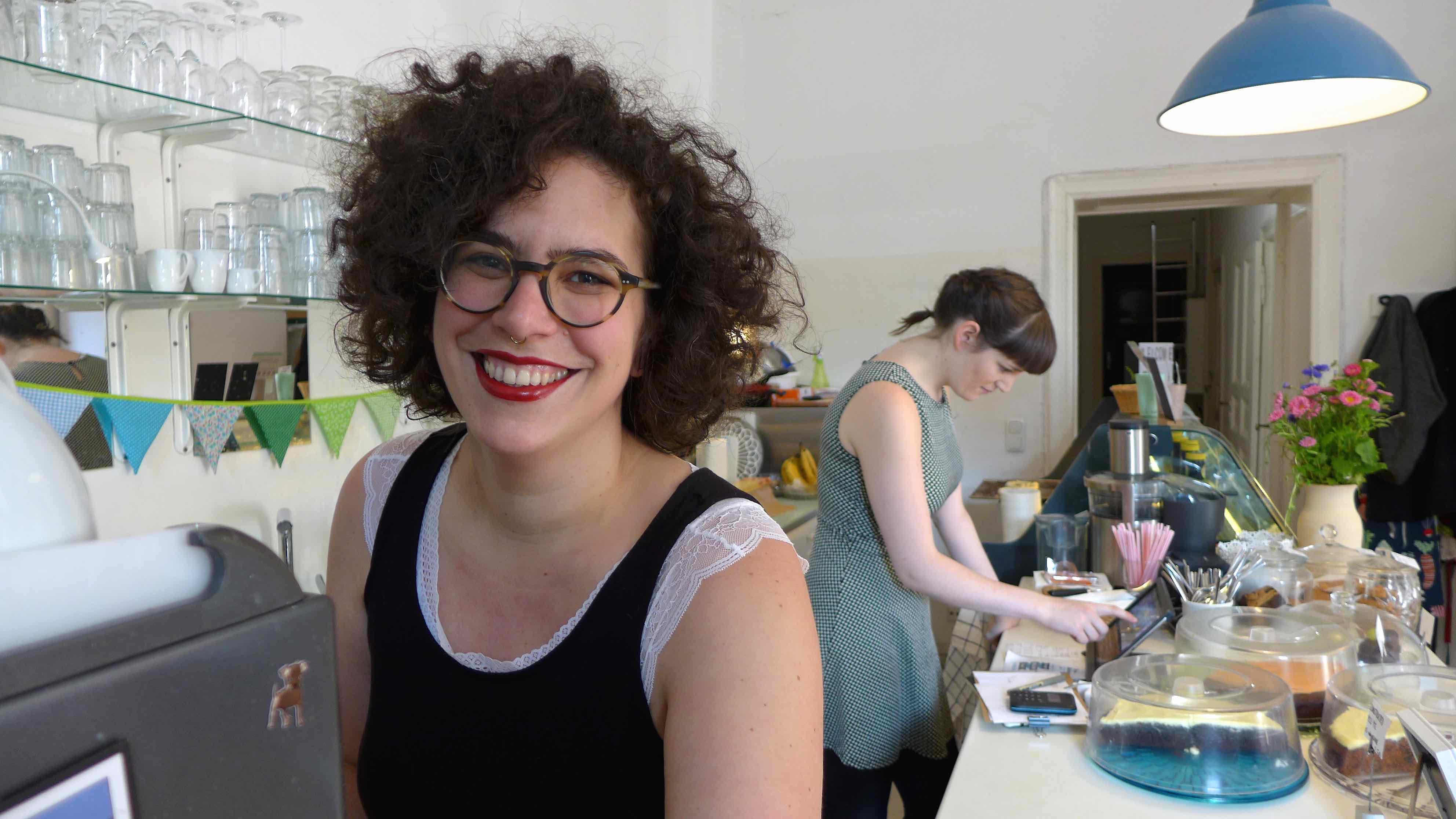
Sarah: Neither of us are professionally-trained chefs so we would never claim to be some fancy and pretentious ‘up and coming’ cafe with a totally mind blowing menu. Like Hana said, we make simple but delicious food that we would want to eat ourselves if we were visiting a cafe. It’s also all reasonably priced, which I think is really important considering that Berlin is full of artists and self-employed people. We also don’t want to be a pretentious hipster place where you pay crazy amounts of money for coffee.
However I do think we provide something quite rare in Berlin, which is actual customer service! There’s a reputation in Berlin of the “schnauze” attitude of service, basically where the server doesn’t care about making the customer feel welcome, or being friendly.
When I first moved here I hated that aspect of Berlin: as a foreigner as it can be especially alienating. We really pride ourselves on always being friendly and approachable, and creating a cozy atmosphere where everyone is welcome.
CF: Have you had a lot of support here in the opening of the café?
Hana: We have had an amazing amount of support. Our friends in Berlin were all super supportive and helpful (special shout out to Kim who made our beautiful website!) Also our families back home did what they could to help, which was mainly financial support. Without our parents we would definitely have had to take out a bank loan, and let’s be honest, a “dad-loan” has much better conditions!
Sarah: The fact that we could even open in the first place is thanks to the support from our families, so we feel incredibly grateful and lucky.
Really, the support we received was overwhelming especially at the start when we had no idea what we were doing, and spent about a month running around like headless chickens! We had a team to help clean the cafe and set it up how we wanted when we took over the lease from the previous cafe owner. My memory of that time is kind of blurry, but I’m incredibly proud that we managed to open two days after we took over the lease. It was such an impressive turnaround, only made possible with the help of our friends here.
Now we just have to make sure we are fabulously successful so that we can repay our debts!
CF: I feel cooking and baking is an inherently creative endeavour. Do you agree?
Hana: I think cooking and baking is equally creative and scientific: once you have learned the rules you can experiment and let the creativity flow. I really enjoy making special things every now and then, but in the daily running of the café we also tend to stick to the things we know. Humans are creatures of habit and they want things to stay the same.
Sarah: I absolutely love creating new cakes and sweet treats, and I don’t think that will ever get boring. There are definitely times when things don’t turn out how you picture them in your head, which can be disappointing and frustrating. But what I love is that it’s now even easier to learn new cake decorating techniques for free, with inspiration on Pinterest and Instagram, and YouTube tutorials.
It feels like the opportunities are endless and we always welcome any chance to try new things and experiment. There is absolutely nothing better than a group of people being amazed – and made speechless – by seeing or eating a cake that you made yourself.
CF: In some cultures, hospitality is seen as a noble, worthy profession (eg Spain, Italy, France), whereas in other cultures (Australia, UK, US, maybe even Germany?!) it is often seen as “hostility” not “hospitality” – a “lower” kind of job that you only do to make money on the side while you pursue your “dream job”. How do you each approach it? And what is great about being in the hospitality industry and profession?
Hana: In Germany – especially in Berlin – I feel like being in hospitality is always seen as a temporary thing, while you pursue your “real” dreams. I can’t even count the amount of times that people have asked me “But what else do you do?”, because clearly working in a café isn’t enough and I must have other ambitions!
I’ve definitely gone through phases where I swore off hospitality and thought about getting a “real, grown-up job”, but somehow I always ended up going back to it. Having my own café definitely has been a dream of mine for a long time, but it took meeting Sarah to make it come true.
What I love about it is that you get to meet new people every day, and while we certainly have our routines, every day is different. You really can’t get bored in this profession and I wouldn’t change it for all the money in the world.
Sarah: Oh my, I’m so sick of people asking me “what else do you do” too!! It’s really frustrating being condescended to by your peers, when often I feel that many people I know would not be able to even survive a day working in a cafe on their own!
It is annoying that working in hospitality in the UK and Germany is often regarded as a side job, or temporary, because it takes real customer service skills, physical endurance, creativity and good humor to work in this field. All of which are traits I think should be celebrated.
I have worked in so many different kinds of jobs, and I can honestly say that working at hom is by far the most fun, creative, challenging and stimulating work I have ever done. It has also been a dream of mine for years to be my own boss and run a cafe, and though it can be extremely exhausting and overwhelming, it’s sooo worth it when a customer compliments your cake or the atmosphere at the cafe. Meeting lovely people every day, all the cake and coffee you could wish for, and being your own boss… I don’t think it can get much better to be honest!
CF: So what exactly attracts you to Berlin? Why make your home here, and open a business here, in particular? Why not elsewhere?
Hana: I think because Sarah and I met here. We wouldn’t have met anywhere else and I wouldn’t have had the “balls” to open and run a café all by myself. Even though the idea of opening my own café first occurred to me in Barcelona (inspired by their lack of breakfast places) and the name “hom” was born while I was living in Edinburgh. So in my mind the café existed in various places, but it took finding the “perfect partner in crime” to make it reality.
Sarah: I think that hom fits perfectly as a concept here in Berlin: it is such a lively and creative city with a truly unique vibe that encourages small businesses like ours. I don’t think any other city in the world would be as fun, and still affordable. Maybe in the future we’ll expand overseas – but I don’t see that happening any time soon, haha!
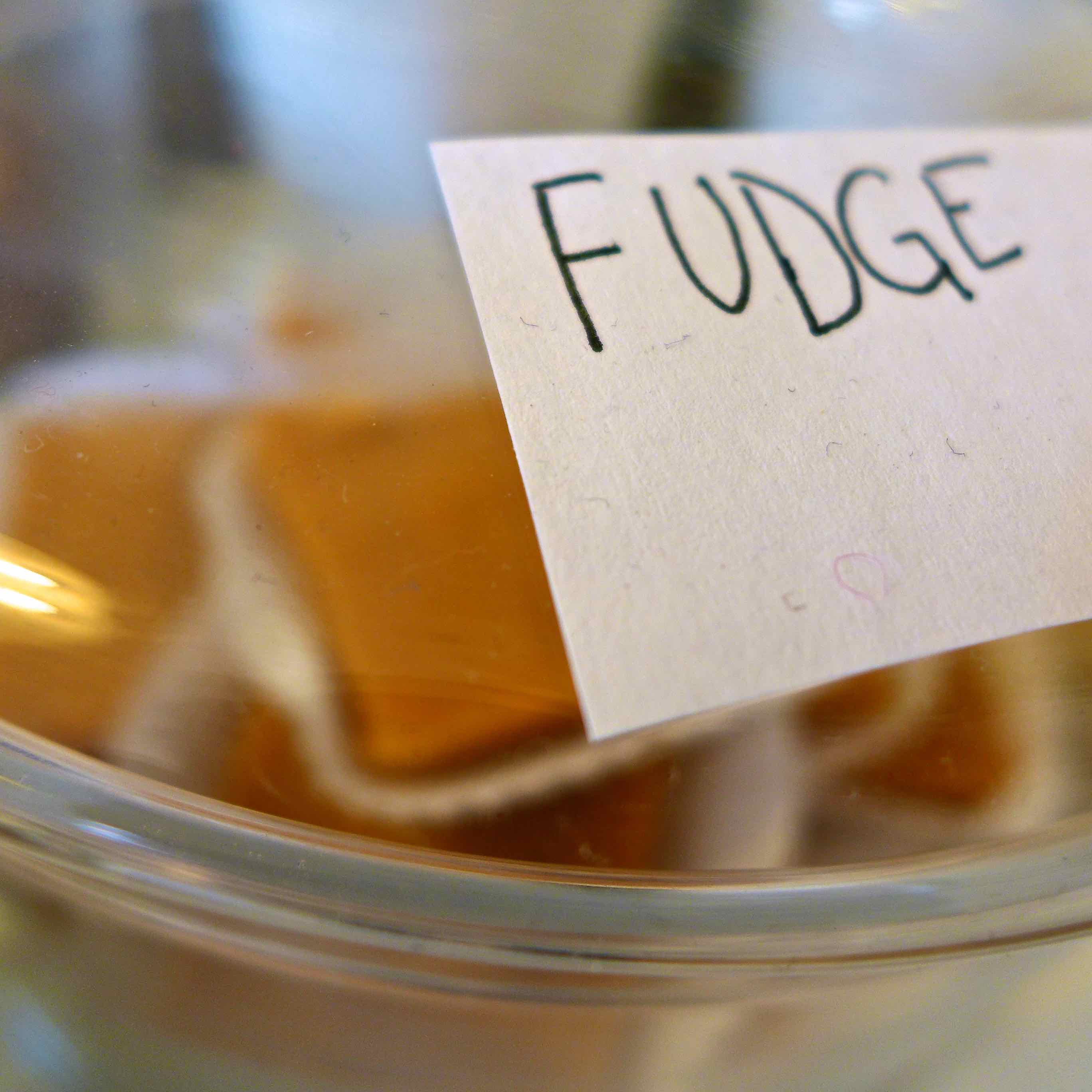
And I’ve really found a home here: there’s such a unique vibe for independent businesses; there is definitely no way I could open up a cafe in London. The prices are crazy and there are so many chains everywhere there’s really no room for a small cozy cafe like hom.
Something that’s also particularly exciting about Berlin is the diversity here: we have customers from all over the world which makes everyday completely different from the next. We get the chance to learn new things, meet some really interesting people, and all without that stressful hustling in other cities like London.
Hana: I love Austria, and it will always be my home, but I don’t think I would want to live there again. So running a business there is out of the question.
Actually the first time I wanted to open hom was [when I was living in] in Edinburgh, but I don’t think it would have worked as well there as it does here, also because I didn’t have Sarah there and she is my better half! There’s no way either of us would have managed to do this alone.
The thing that attracts me to Berlin – and the reason why I ended up coming back here – is the diversity, and the people. In Scotland I found it really hard to make meaningful connections with people because most people I met there were also from there, and already had their friend groups. They just weren’t as open, whereas in Berlin everyone seems to be from somewhere else, and, to a degree, “new” here. Which results in people being more open and approachable when it comes to making new friends.
I must admit though that none of my friends here are actual Berliners – make of it what you will!
CF: Well just on that point – many Berliners not actually being from Berlin; in a sense hom is part of this ever-changing face of Berlin, an example of new immigrants choosing to – or out of necessity having to – make Berlin their home. It is very much becoming an international city, and one of the destinations for people across the world such as yourselves, and until recently myself as well! A place to live, work, experiment, start new enterprises, or to ‘start again’. Recently the Washington Post dubbed Berlin a “major migrant magnet”. Some locals detest and resist this change and/or “gentrification” aspect as they see it. Others see it as inevitable and go along with it, and then there are those who embrace it. Where you fit into this spectrum of immigration, in the “new” Berlin of 2017?
Hana: Hah, we’re coming back to the creatures of habit. People don’t like change, even if it’s for the better. A lot of the former regulars of Madame Zucker (the café that lived here before we did) didn’t come to us, because they felt like we were the “evil” face of gentrification. As if we had single-handedly raised all the rents in the Kiez and made Madame Zucker go out of business!
Now they’re slowly accepting us as part of the community, especially once they get to know us and see that we’re not an evil corporation. Gentrification is a many-faced god. It can be good in certain aspects and bad in others.
The good thing about it is that we now have a café in a pretty nice and safe neighbourhood. Which didn’t use to be this way. Andrea, the former owner, told us stories about the time when she first started and got threatened by the local “gangs”. We haven’t had any of those issues, which is nice.
And a lot of our regulars are families with small children, and it’s really been amazing to watch them grow. They’re learning to walk and talk and growing up in the café. That makes me feel like we have a real community thing going here and aren’t just yet another hipster café.
On the other hand, the rate at which rents are going up even here in Neukölln is more than just alarming. I even had to move outside “The Ring” [Berlin’s inner-city defined by it’s S-Bahn “rapid transit railway” loop], because I couldn’t afford to live in good old Neukölln anymore. Not that my new neighbourhood is that bad, but currently, gentrification stops when you cross the Ring-line.
Rents ‘magically’ drop by a significant amount and so does the number of expats living in these areas (you know, the “fancy” kind of immigrants who come here because it’s “cool”). What my neighbourhood lacks in fancy cafés and shops, it makes up for in Lebanese hairdressers and creepy old-man-pubs.
Sarah: My feelings about gentrification have actually changed a lot since starting hom. Not to go against my socialist roots, but I have to say that many aspects of gentrification can actually be positive even though I know it’s often viewed as a bad word to describe areas becoming crazy-expensive and kicking out local people.
The magical thing about Berlin lies in its contrasts – it’s what makes the city unique. My mum recently visited and couldn’t get over the graffiti everywhere [often on old historical and ornate buildings on neighbourhood streets], something I have completely gotten used to.
But I think despite its occasional griminess and a healthy amount of weirdos, there’s so much beauty and innovation here. And I don’t feel like our area [Wildenbruchplatz in Neükolln] has become unaffordable at all. So from my point of view it doesn’t feel like there are any disadvantages to have nice cafes and bars here. Perhaps In a few years things will get too pricey and hipster, but for now I think the balance is pretty great.
And for hom, the feeling of being a home for other foreigners who might feel isolated or homesick is really important. Since opening we’ve been so lucky that we have been constantly collaborating with artists from across the world, and have exhibited amazing artworks and held some amazing gigs and events here. We’re pretty much booked out for the rest of the year!
So we’re so happy to be part of the “migrant magnet”, especially when so many people bring such talent and new perspectives.
CF: What would you be doing if you weren’t running hom? And what are your dreams for hom, say, if you look a few years down the track??
Hana: If we weren’t running hom I would probably still be baking cupcakes!
The dream for hom is that it grows and prospers, and that one day we will even be able to take some time off, or have a real weekend. They aren’t huge dreams, but they’re important to keep us going.
Sarah: Wow, that would be nice – a holiday seems like a distant dream at the moment! I know that if I hadn’t started hom with Hana I would still be baking and decorating cakes somewhere! Even if it was a hobby, and I was working in an office, I’m sure I’ll always have a passion for baking.
To be completely honest, the idea of working in an office now gives me the shivers. I can’t think of any workplace I’d rather be than coming to our corner of Neukölln and looking out into the park, accompanied by the smell of baking cakes and the sound of people chatting or babies gurgling.
CF: Final question: favourite hom recipe and why?
Hana: I think it would have to be the carrot cake, mainly because it’s not just one hom recipe but two. Sarah and I are both convinced that our recipe is the best ever, so we each make a different carrot cake. It’s like an ongoing battle…
Sarah: My favorite recipe has got to be our date-and-peanut-butter truffles. They are sooo simple, and a guilt-free treat, because they don’t have any refined sugar. I’ve been trying – with varying degrees of success – to cut down on my refined sugar intake. So these chocolatey-gooey balls help me to avoid eating all the cakes in the café!
Many thanks to Sarah Playfair and Hana Hariri for the interview!
—
- Interview: Hana Hiriri, Sarah Playfair
- Words/edit/photos: Megan Spencer
- Visit: hom’s website
- Like: hom on Facebook
- Follow: hom on Instagram (especially for cake lovers and baking nuts)
- View: the full hom gallery on SmugMug
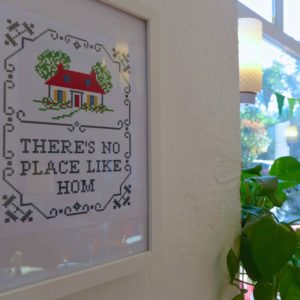
Tagged: berlin, hom, hom cafe berlin, neukölln, wildenbruchplatz

